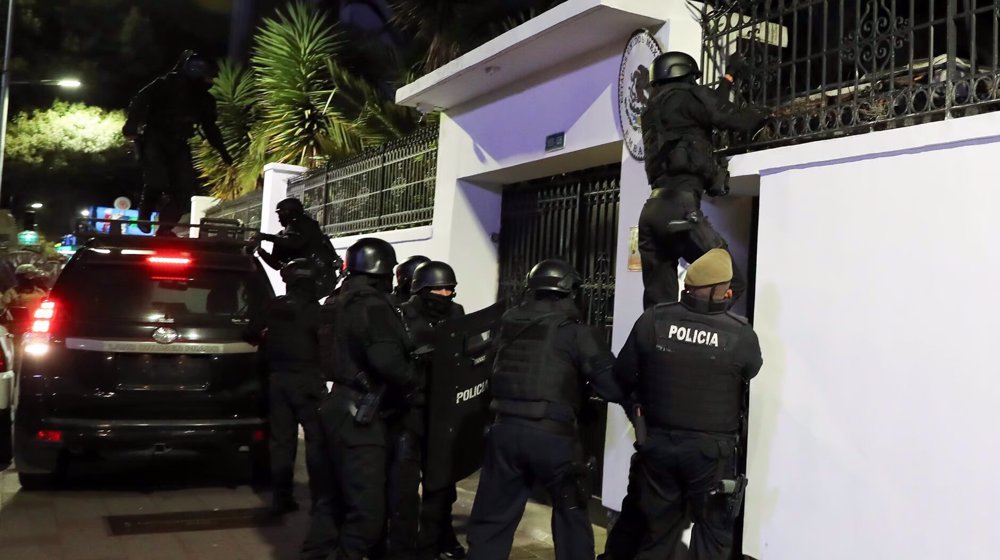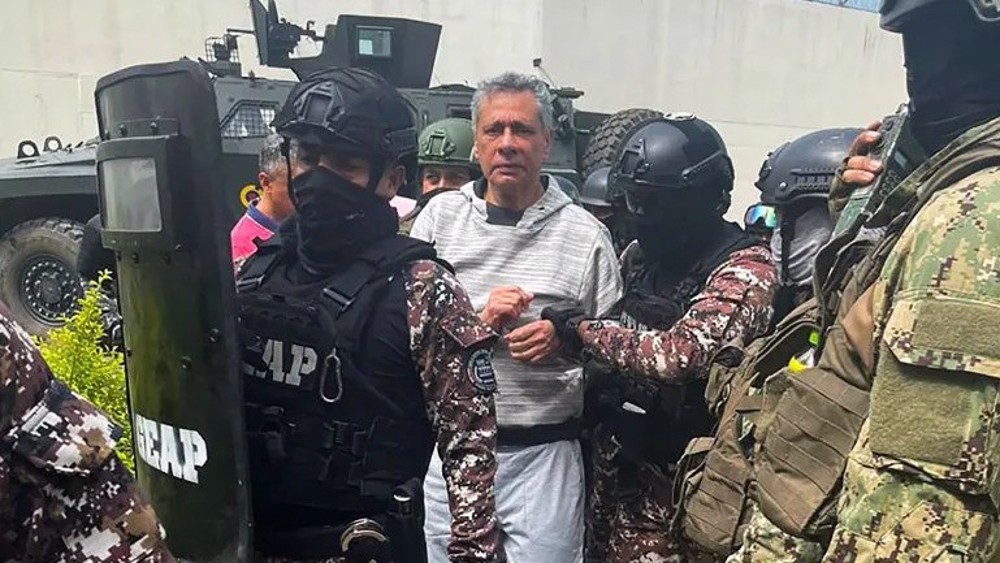New round of NAFTA talks open in Mexico amid labor rights protest
Hundreds of protesters have rallied in Mexico City to slam what they view as their government’s “sell-out” to neo-liberalism as Mexico, Canada and the US began a new round of talks aimed at revamping the North American Free Trade Agreement (NAFTA).
On Friday, trade representatives of NAFTA partners met in Mexico City for the second round of talks to work out the details of the trilateral trade pact amid US President Donald Trump’s threats to abandon the deal.
As the talks opened, hundreds of small farmers and union members, including labor activists from Canada, converged on Mexico’s legislature to demand that NAFTA be revised in ways to truly benefit the workers.
The anti-NAFTA protesters say the competition created by the 1994 trade deal has had a severely negative impact on smaller farms.
The Mexican government is also facing pressure to overhaul its labor laws and deliver wage hikes to factory workers, who make an average of only $2.30 per hour, about one-tenth of the average wage of a US factory worker.
“We’re here to tell them we’ve got our eye on them, because the bottom line on the past 23 years is not good,” said the protest organizer, Enrique Fabela.
Also participating in the rally was Canadian labor leader Jerry Diaz, who heads the private-sector union, Unifor. Speaking at the event, he called on Mexican workers to stand up for their rights.
“I don’t buy the argument that the Mexican negotiators are making that somehow we have to keep our citizens living in poverty in order to get jobs. That’s a nonsense argument,” he emphasized.
He further underlined, “In Canada and the United States, autoworkers can pay for the cars that they make. In Mexico they never can. That’s wrong.”

After setting an ambitious “accelerated” calendar during the first round -- held in Washington last month -- negotiators began discussions on revising the 1,700-page agreement as the 5-day, closed-door talks got underway.
Instituted in 1994, NAFTA abolished most tariffs across a region representing nearly 28 percent of the global economy.
Trump, who demanded the renegotiation of NAFTA, has referred to the trade deal as disastrous for the US industry and jobs.
He escalated his anti-NAFTA rhetoric ahead of the second round talks, insisting that Mexico was “being difficult,” and that Washington would “end up probably terminating” the agreement.
The US president also stated this week that he might trigger a 180-day countdown to withdraw from NAFTA, while the talks were ongoing to help facilitate his objectives, which include sharply reducing a $64 billion annual US trade deficit with Mexico.
Mexico, which sends nearly 80 percent of its exports to neighboring US, has rejected such threats as posturing.
Meanwhile, some Mexican officials have said that Trump’s repeated threats put pressure on his negotiators, forcing them to adopt tougher positions “than they would like.” Other officials said they were ready to leave the talks if necessary.
Mexican Economy Minister Ildefonso Guajardo and Foreign Minister Luis Videgaray told US authorities in Washington on Wednesday that Mexico would quit the talks if Trump pulls the trigger on withdrawing from the agreement.
Juan Pablo Castanon, president of Mexico’s Business Coordination Council representing the private sector in the talks, further stated that the country was refining a “Plan B” that could be up and running within three months of an eventual NAFTA collapse.
VIDEO | Press TV's news headlines
France fails to ban anti-Islamophobia protests
In Numbers: 200 days of Israeli genocidal war against Palestinians in Gaza
Death toll mounts in Gaza as Israeli genocidal war marks 200 days
Hamas dismisses US accusation of obstructing ceasefire in Gaza
Gaza solidarity protests sweep US universities despite police crackdown
Tension flares in India after Modi's anti-Muslim hate speech amid elections
Iran, Pakistan to bring peace, stability to region through cooperation: Raeisi












 This makes it easy to access the Press TV website
This makes it easy to access the Press TV website